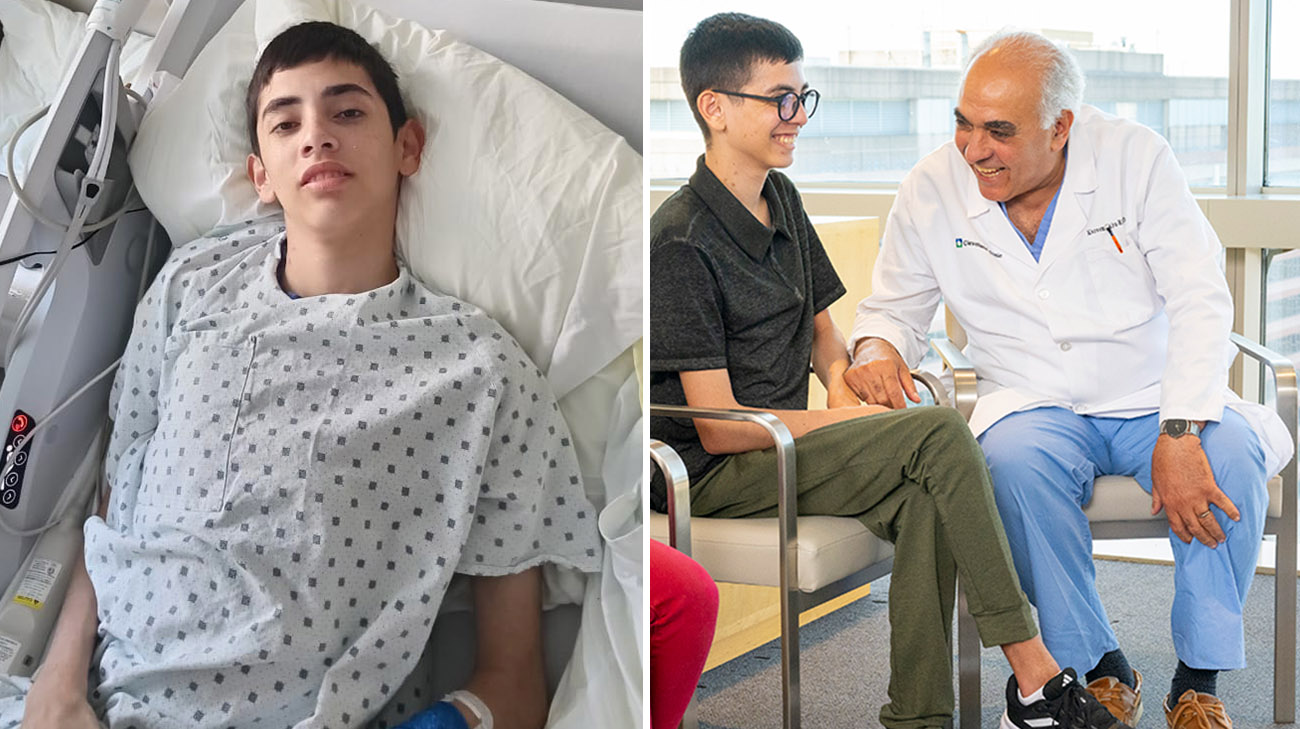
Before he fell sick in April 2023, Gerson Chinchilla Guillén was a happy teenager who enjoyed an active lifestyle. He loved riding horses, playing in the river, and going to school. As his symptoms worsened, Gerson stopped being active. He was feverish and nauseous. He and his parents drove from their village in the forests of Costa Rica to a hospital in San Jose, the country’s capital.
At first, doctors treated Gerson for a bacterial infection, and they also noticed his abdomen was abnormally swollen. Gerson became so ill he was put into a medically induced coma. He recovered from the bacterial infection after two weeks of intensive care, but his abdomen was still swollen. Based on the MRI, it looked like there could be a large tumor. Doctors told the family they recommended surgery. Following several abdominal surgeries, a large duodenal fistula developed.
A fistula is an abnormal connection between two body parts. In Gerson’s case, vital bodily fluids were leaking from his small intestine into the abdominal wall. As a result, he was at risk for dehydration and electrolyte imbalance. His ability to digest food and absorb nutrients was also reduced due to the loss of digestive enzymes. Most of the food Gerson ate was diverted into his abdominal wall as it passed through the fistula, instead of being processed through his digestive tract. Gerson started experiencing significant weight loss because of his medical condition.
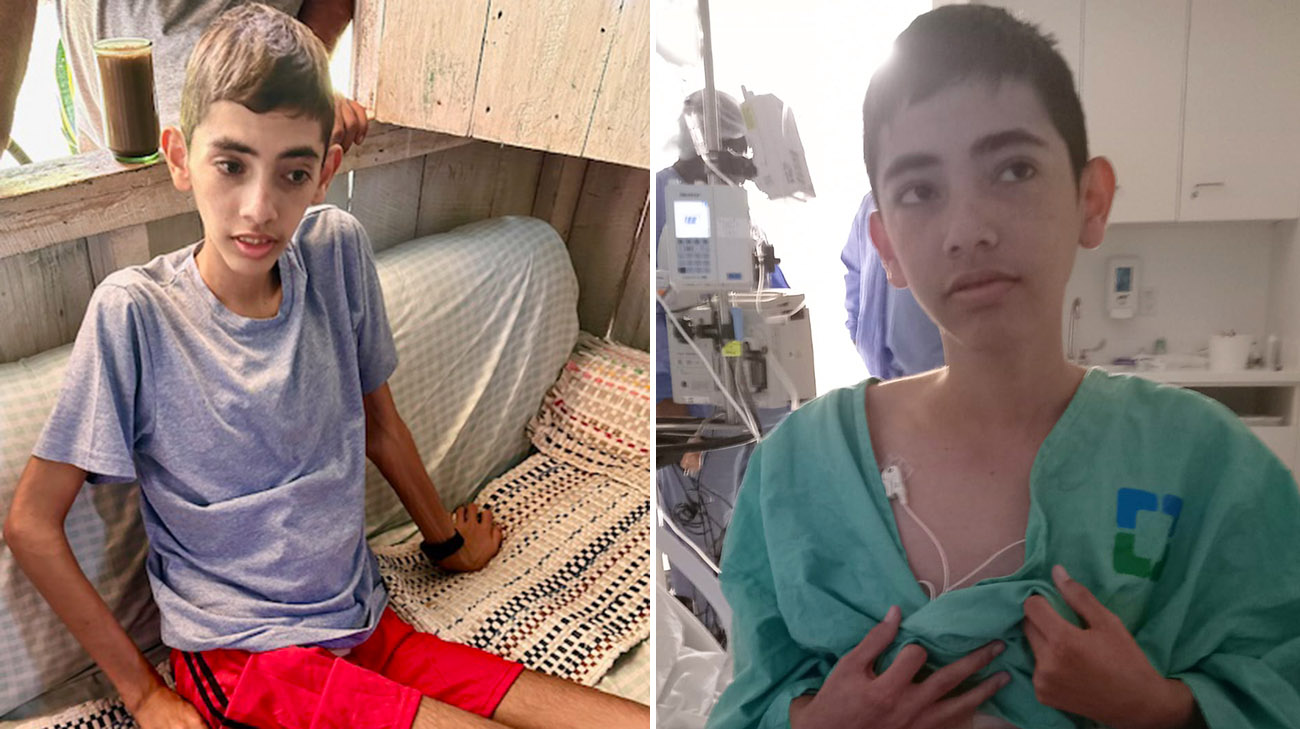
Gerson's health continued to decline until he came to Cleveland Clinic for care. (Courtesy: Katherine Guillén Torres)
After two months in the hospital, Gerson was discharged in early July 2023. Back home, Katherine Guillén Torres, his mother, took care of Gerson. A pouch atop his abdomen needed to be changed frequently as it collected the fluids and food that were passing through the fistula into his abdominal wall. Nicole, a long-time friend of the family, wanted to help when she saw Gerson’s health declining. Nicole is a missionary from the United States, who lives in Costa Rica with her husband.
In September that year, Nicole’s daughter came to visit with two nurses as part of their church missionary trip. Nicole asked one of the nurses if she could take a look at Gerson.
Following the missionary trip, the nurse started working at Cleveland Clinic in Cleveland, Ohio, with Kareem Abu-Elmagd, MD, PhD, an expert in complex intestinal surgery. With permission from the parents, she mentioned Gerson’s case to Dr. Abu-Elmagd.
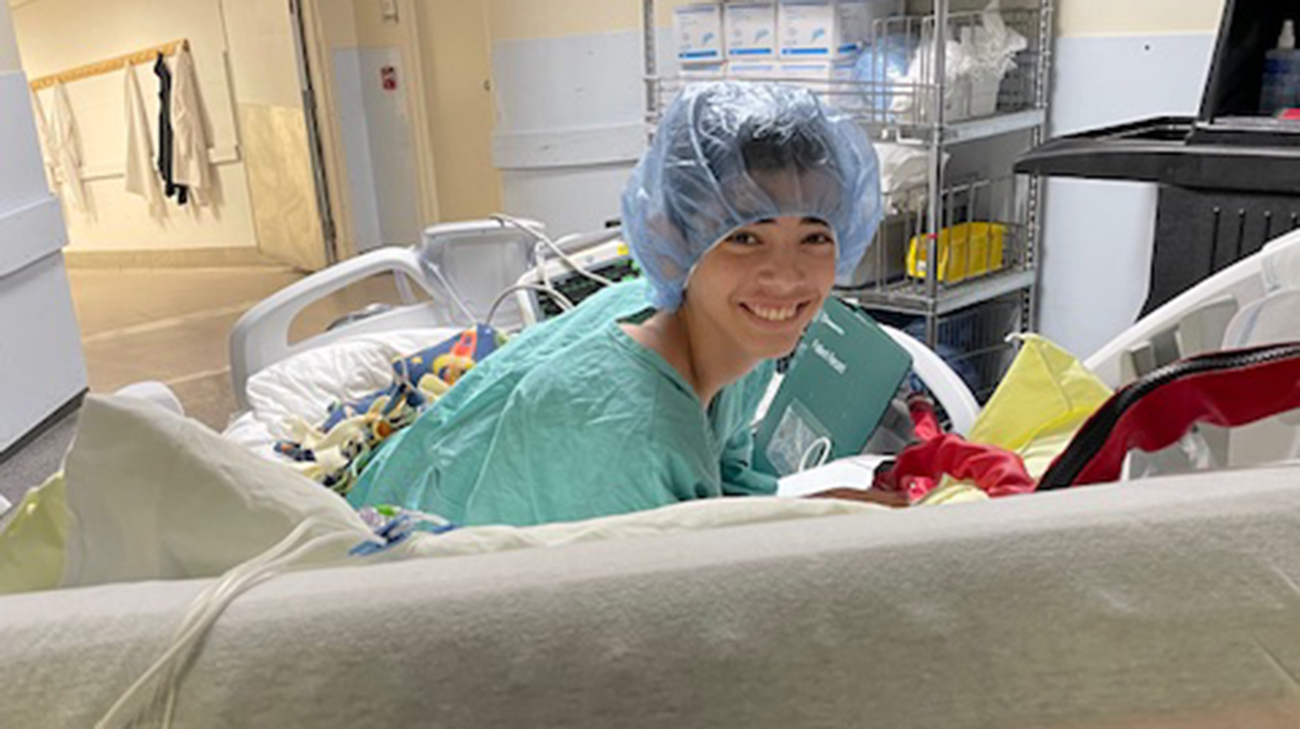 Gerson ultimately underwent surgery to repair the abnormal connection between his small intestine and abdominal wall. (Courtesy: Katherine Guillén Torres)
Gerson ultimately underwent surgery to repair the abnormal connection between his small intestine and abdominal wall. (Courtesy: Katherine Guillén Torres)
“Part of Cleveland Clinic’s mission is to expand access to care so patients with complex conditions can receive the care they need,” says Dr. Abu-Elmagd. “Gerson’s case was medically and surgically complex.”
A Global Patient Services coordinator worked with Gerson’s parents and a team of multidisciplinary Cleveland Clinic and Cleveland Clinic Children’s specialists in surgery, critical care, and hepatology to review the case and advise on the best recommended treatment approach. Following the review, Gerson’s parents travelled to Cleveland Clinic for their son’s care.
Maan Fares, MD, Chair of Cleveland Clinic’s Global Patient Services, says, “For more than 100 years, we’ve made it our goal to keep patients at the center of all we do. Cleveland Clinic is here to relieve suffering and provide every patient with the best care and experience. Taking care of patients, wherever they come from, is our priority.”
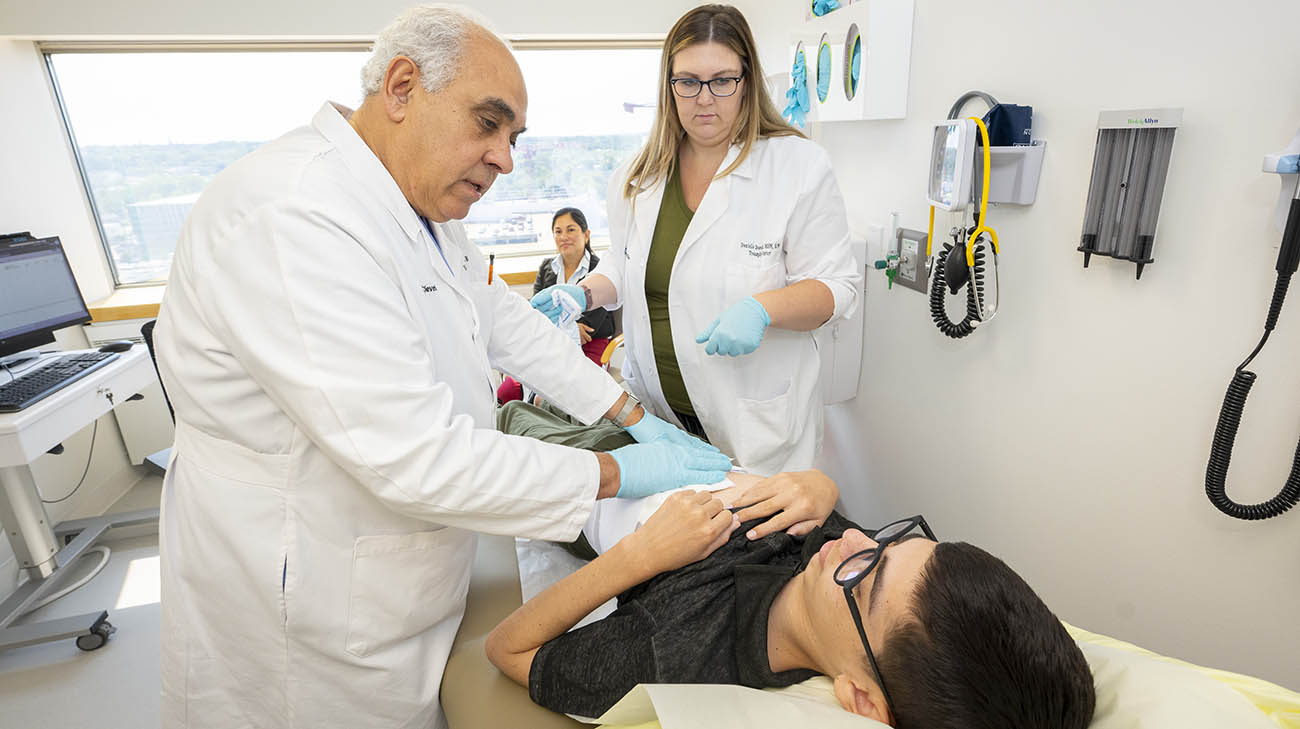
Gerson during a follow-up appointment with Dr. Abu-Elmagd at Cleveland Clinic main campus. (Courtesy: Cleveland Clinic)
With help from their community and church congregation, Gerson, his mother, and Nicole planned for their trip to Cleveland Clinic. They arrived in the United States early July 2024 – one year after he was discharged from the hospital in Costa Rica. Gerson was 17 years old.
“As a mom, I felt very grateful my son could get treatment at Cleveland Clinic and finally have the normal life he deserves,” says Katherine.
As part of Global Patient Services, interpretation services are available for international patients. Rosalyn Ramos, a Spanish interpreter, met Gerson and his mother when they first arrived at Cleveland Clinic main campus. She provided interpretation services to the family throughout their stay.
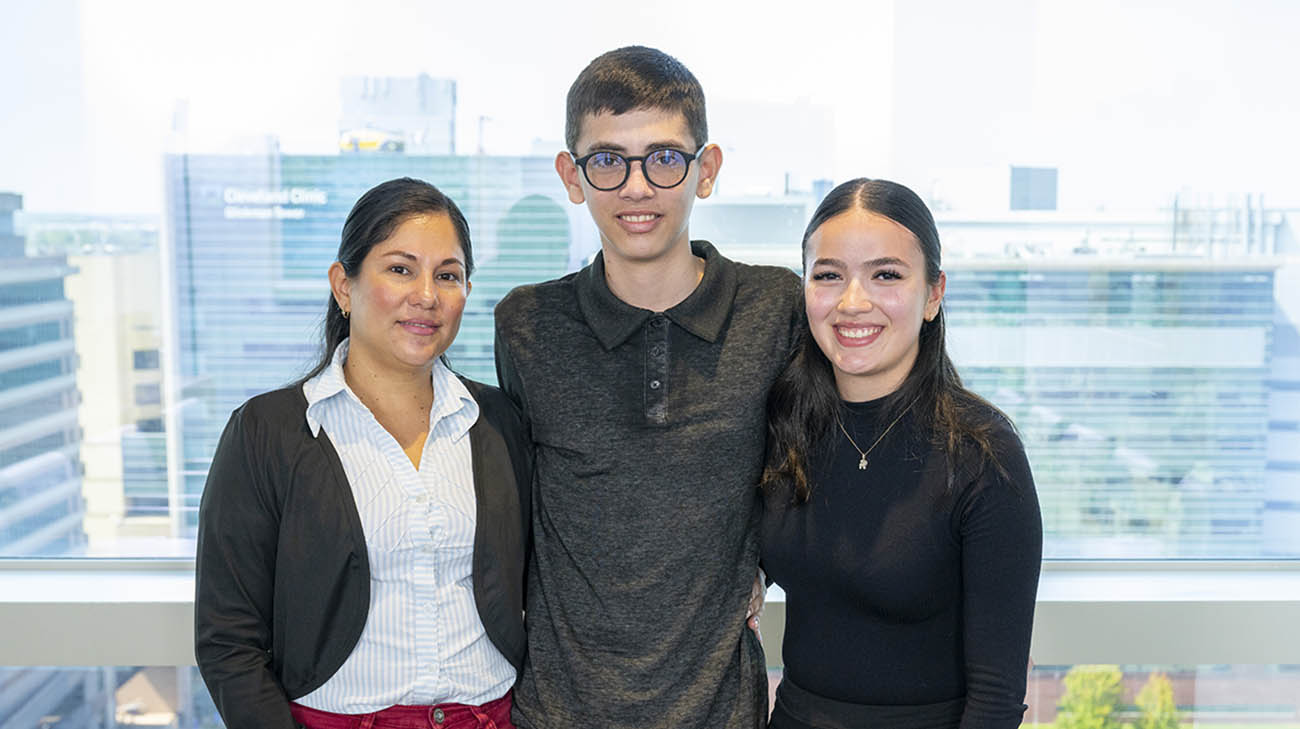
Gerson's mother, Katherine, Gerson, and Cleveland Clinic Spanish interpreter, Rosalyn. (left to right) (Courtesy: Cleveland Clinic)
A multidisciplinary team of specialists evaluated Gerson, conducted tests, and determined the best treatment for his condition. In addition to Dr. Abu-Elmagd, the Cleveland Clinic Children’s team of specialists included gastroenterologist and hepatologist Kadakkal Radhakrishnan, MD, Elizabeth Robinson, CNP, hematologist and medical oncologist Rabi Hanna, MD, hematologist-oncologist Michael Kelly, MD, PhD, and critical care specialist Samir Latifi, MD. Throughout his hospital stay, members of the nursing team provided ongoing care.
Gerson needed surgery to repair the abnormal connection between his small intestine and abdominal wall. In addition, tests revealed he has a rare congenital disorder called lymphangiectasia.
“Lymphangiectasia is associated with acquired or hereditary genetic disorders that affect the lymphatic system,” explains Dr. Abu-Elmagd. “The swelling in his abdomen was due to a cluster of abnormal lymph vessels with large lymphatic cysts that were perceived as a tumor, but it was in fact a lymphatic mass.”
“The first time I met Dr. Abu-Elmagd and spoke with him, I trusted him and thought he could help repair the fistula I had,” says Gerson.
Gerson received intravenous nutrition so his body could better absorb nutrients and become stronger before undergoing the recommended surgical treatment.
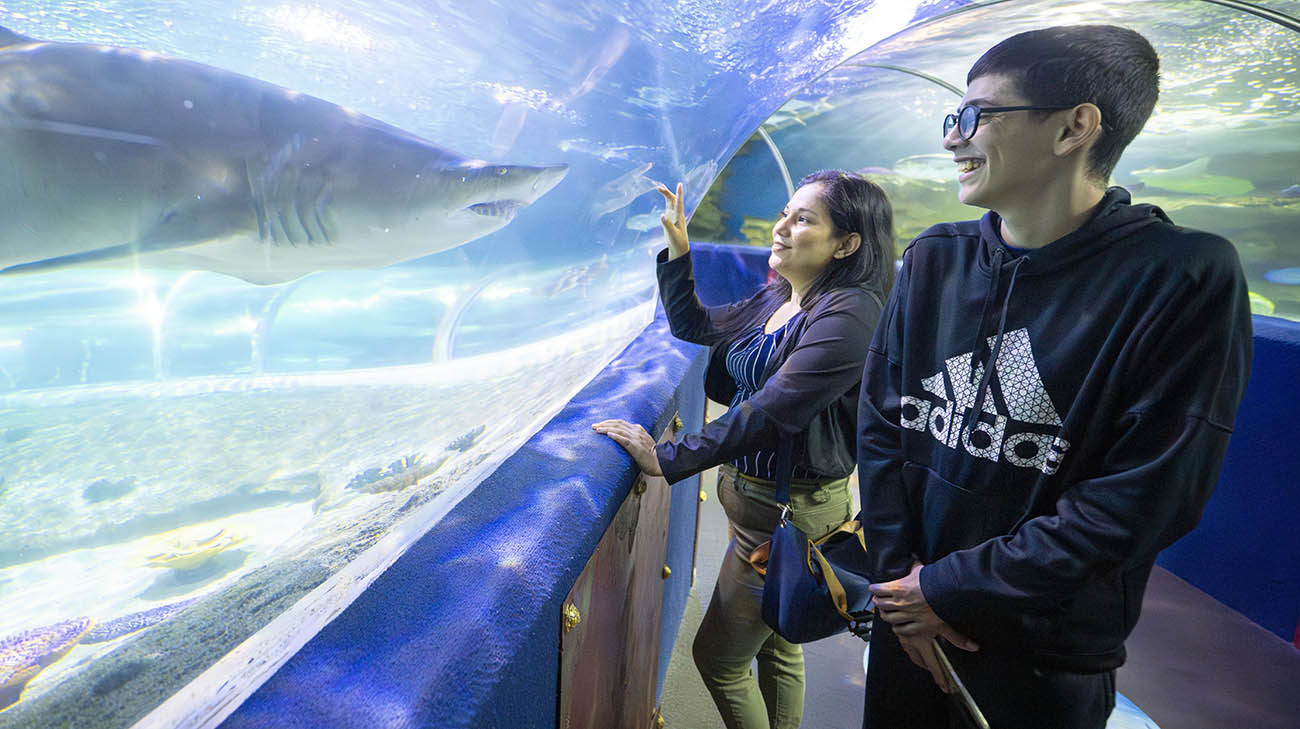
Fully recovered from his surgery, Gerson and his mother visited the aquarium in Cleveland, before travelling back home to Costa Rica. (Courtesy: Cleveland Clinic)
The complex surgery was performed on July 19. “Gerson had a successful repair of the duodenal fistula without compromising his digestive system. The lymphatic cysts as well as most of the abnormal lymphatic vessels were removed. All lymphatic vessels were secured with surgical techniques to avoid recurrence of the abnormal lymphoid collection,” says Dr. Abu-Elmagd.
“When Gerson arrived in Cleveland, he was so skinny. He had not received the nutrition he needed for a year. A lot of what he ate came out of the pouch; the food was not absorbed. After receiving the nutrition his body needed, he started feeling better – his colors went back to normal. Following the surgery, he cried happy tears that the ostomy bag was no longer there and no longer needed,” says the family’s friend, Nicole.
Gerson stayed in Cleveland with his mother and Nicole until he fully recovered from the surgery.
Two months following the operation, Nicole reflected on the journey. “It feels like a miracle we were connected to the right people at the right time. So many people contributed to make this journey happen so Gerson could receive the treatment he needed. Through it all, Gerson didn’t complain. He is amazing.”
Rosalyn also saw Gerson’s progress. “When I first met Gerson, he didn’t talk much with me. Now, he jokes around with me. It’s very beautiful to see him now that he’s feeling like himself again.”
Shortly before heading back home in September 2024, Gerson shared: “I am looking forward to seeing my family. I am the oldest child; I have one brother and one sister.” He credits his faith for giving him hope and believing he could get better.
Related Institutes: Digestive Disease & Surgery Institute , Cleveland Clinic Children's

